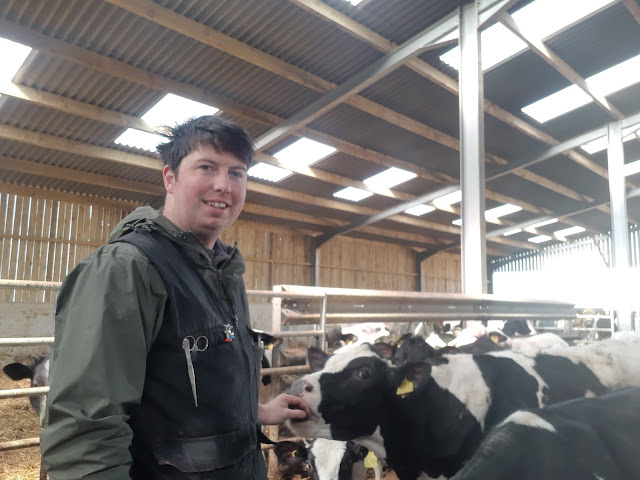Engaging the farming community in zoonotic disease research
As part of our zoonotic TB research we have a community involvement activity funded by the Health Protection Research Unit in Behavioural Science and Evaluation at University of Bristol. In this activity we are aiming to embed representatives of the farming community in zoonotic disease research.
Ross Symons is a beef farmer from Cornwall who has been co-developing the zooTB study almost since its inception. He has played a central role in guiding study design, documentation and recruitment. Here, he shares his experiences as a patient and public involvement (PPI) contributor to the zooTB study.
Getting involved in Zoonotic TB Research by Ross Symons
My name is Ross Symons and I’m a beef farmer on my family farm in Cornwall, as well as an artificial insemination (AI) technician for Cogent Breeding. I’m the fourth generation of my family farming, so have been around it all my life.

How I became involved in PPI
I was first told about public involvement in research by my Aunty who has been a public contributor on several studies relating to health research. She saw an advert about research looking into bovine tuberculosis (bTB) and passed it on to me. She thought that I might be able to support this type of research due to my role as a farmer.
Farming cattle means that TB has always been a topic present in my life and is a very sensitive and emotional subject to cattle farmers, particularly those in southwest England. Being involved in research looking at the links between farmers potentially catching bTB from their cattle is another approach to eradicating this disease from our country, so I wanted to help the researchers with their study.
Activities I have been involved in on this study
As a public contributor, I’ve been involved in helping shape the research to make sure that it is relevant and as accessible as possible to the target audience.
There are many different ways to farm cattle and the range of people involved in farming them is very broad. Making sure that the study is open to as many people as possible will hopefully result in better information, as well as adding credibility to the study.
Because the study involves taking blood samples, we want to recruit participants on a fixed date for logistics. Knowing market days, agriculture show dates and Young Farmers Club meetings all helps the study in finding participants.
Why is PPI important?
Farmers are very knowledgeable about the farming industry and priorities within this sector. So it is important that new research makes sense, has a clear purpose and is created by people who are aware of the needs of the farming community.
I have really enjoyed working with the researchers on their project. Being able to see the work going on behind the scenes to deliver this research and how important it is to the wider community has been very interesting. It has really highlighted how several different areas of research can interlink with different industries.
My advice for anyone thinking about becoming a PPI contributor
To anyone thinking about getting involved in research I would say – do it! You may think that you have nothing to offer but that is sort of the point of PPI, and you might not know what your contributions are until you are at the meetings.
The researchers need the study to be applicable to a wide audience as this can help improve the validity of the findings. If you don’t understand something, then they’re potentially ignoring people who could take part.
Valid criticism is welcome, so don’t be afraid to say something if you feel there is a part of the study you don’t agree with. Everybody wants the study to work and part of that is highlighting the parts that don’t, so don’t be quiet if there is something you’re unsure about.
Being able to bridge the gap between scientific research and the real world is such an important part of any study. Being involved as a public contributor means that you are playing a key part in making the research successful.
Hear what Ross has to say about getting involved in research (YouTube short).
